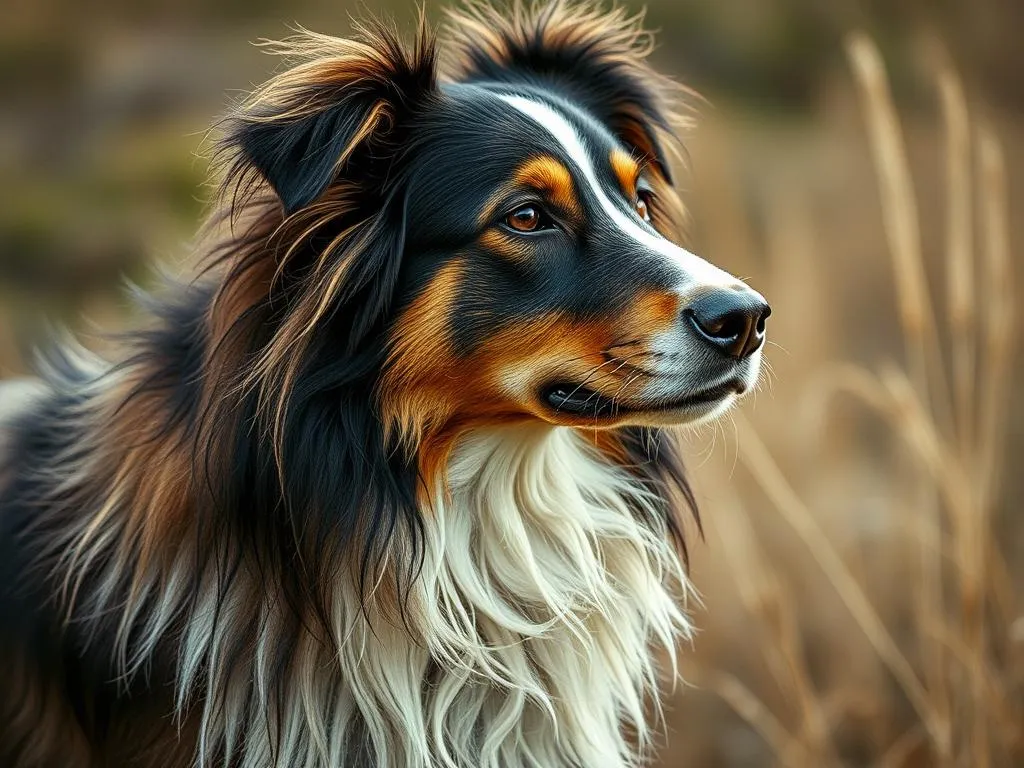
Introduction
The world of dog breeds is vast and fascinating, showcasing a diverse array of canines that cater to different lifestyles and preferences. For potential dog owners, understanding the unique characteristics of various breeds is essential for making informed decisions about which furry companion will best fit their home. Among these breeds, the Bohemian Shepherd stands out as a unique and captivating choice.
As we delve into the specifics of the Bohemian Shepherd, you’ll learn about its history, physical characteristics, temperament, health considerations, and much more. This article will serve as a comprehensive guide for anyone interested in this remarkable breed.
Understanding Dog Breeds
What is a Dog Breed?
A dog breed is defined as a specific group of dogs with a common ancestry and shared traits, including physical characteristics, behavior, and temperament. These traits can vary widely among breeds, leading to an incredible diversity in appearance and personality. Understanding these characteristics is crucial for potential dog owners, as each breed is suited to different lifestyles and environments.
Importance of Choosing the Right Breed
Selecting the right dog breed involves several factors, such as your lifestyle, living situation, and activity level. For instance, an active person may thrive with a high-energy breed, while a more sedentary owner might prefer a calmer companion. Choosing the right breed can significantly impact a dog’s health and behavior, leading to a harmonious relationship between the dog and its owner.
History of the Bohemian Shepherd
Origins
The Bohemian Shepherd hails from the Czech Republic, specifically the Bohemia region. This breed was primarily developed for herding and guarding livestock, showcasing its versatility and intelligence. Originally, these dogs were bred to manage sheep flocks, demonstrating their strong work ethic and loyalty to their handlers.
Recognition
While the Bohemian Shepherd may not be as widely recognized as some other breeds, it has gained acknowledgment from kennel clubs and organizations in Europe. Its historical significance is also notable, as these dogs were often associated with shepherds and farmers, playing an essential role in rural life throughout the region.
Physical Characteristics
Size and Weight
The Bohemian Shepherd typically ranges in size from 18 to 24 inches at the shoulder, with males generally larger than females. Adult males usually weigh between 45 to 65 pounds, while females tend to weigh between 35 to 55 pounds. This breed reaches maturity around 12 to 18 months, depending on individual growth patterns.
Coat and Color
The coat of the Bohemian Shepherd is medium-length and dense, providing insulation and protection against various weather conditions. Its texture is usually straight or slightly wavy, with a soft undercoat. Common coat colors include black, brown, and gray, often with markings that enhance their striking appearance.
Distinctive Features
One of the most distinctive features of the Bohemian Shepherd is its expressive eyes, which can range in color from brown to hazel. Additionally, their ears are typically semi-erect, giving them a keen and alert expression. Compared to similar breeds, such as the German Shepherd, the Bohemian Shepherd exhibits a more compact build and a slightly different coat texture.
Temperament and Behavior
General Temperament
The Bohemian Shepherd is known for its intelligence, loyalty, and strong work ethic. These dogs are highly trainable and eager to please, making them excellent companions for active families or individuals. They possess a moderate energy level, requiring regular exercise and mental stimulation to thrive.
Socialization Needs
Early socialization is crucial for a Bohemian Shepherd. Exposing them to various people, environments, and other animals will help them develop into well-rounded adults. Recommended socialization activities include puppy classes, dog parks, and positive interactions with different breeds and species.
Training
Training a Bohemian Shepherd can be a rewarding experience, given their intelligence and desire to learn. Positive reinforcement techniques, such as treats and praise, work exceptionally well with this breed. Consistency and patience are key, as these dogs respond best to structured training sessions that keep them engaged and motivated.
Health and Care
Common Health Issues
Like all breeds, the Bohemian Shepherd may be prone to certain health concerns. Some of the most common issues include hip dysplasia, elbow dysplasia, and certain genetic disorders. Regular veterinary check-ups and preventative care are essential for maintaining their health. Prospective owners should inquire about health screenings and genetic testing to ensure they are adopting a healthy puppy.
Nutrition
A balanced diet is vital for the overall health of a Bohemian Shepherd. High-quality dog food that meets their nutritional needs based on age, activity level, and health status is recommended. Protein should be a primary ingredient, with appropriate levels of fats and carbohydrates to support their energy needs.
Exercise Requirements
The Bohemian Shepherd thrives on regular exercise, requiring at least an hour of physical activity each day. This can include walks, runs, playtime, and engaging in dog sports like agility or obedience training. Mental stimulation is equally important, so incorporating puzzle toys and interactive games is beneficial for their well-being.
Living with a Bohemian Shepherd
Ideal Living Conditions
The Bohemian Shepherd can adapt to various living environments, but they thrive in homes with ample space to roam and play. While they can live in urban settings, access to parks and open areas for exercise is crucial. A rural home with a yard is ideal, as it allows these dogs to engage in their natural herding instincts.
Compatibility with Families and Other Pets
This breed is generally compatible with families, including those with children. Their gentle nature and protective instincts make them excellent family pets. However, early socialization is important to ensure they are well-adjusted and comfortable around kids and other household pets.
Grooming Needs
Grooming a Bohemian Shepherd is relatively straightforward, requiring regular brushing to manage shedding and prevent matting. During shedding seasons, more frequent grooming may be necessary. Bathing should be done as needed, typically every few months or when they become particularly dirty.
Conclusion
The Bohemian Shepherd is a remarkable breed that combines intelligence, loyalty, and versatility. With their rich history, distinct physical characteristics, and engaging temperament, they make excellent companions for active families and individuals alike. Before bringing a Bohemian Shepherd into your home, it’s crucial to consider your lifestyle and the specific needs of this breed to ensure a harmonious relationship.
Frequently Asked Questions (FAQs)
General FAQs about Dog Breeds
-
What factors should I consider when choosing a dog breed?
Consider your lifestyle, living situation, and activity level. Each breed has different needs, and matching them with your environment is essential. -
How can I ensure my dog is well-socialized?
Start socializing your puppy early by exposing them to various people, animals, and environments. Puppy classes and supervised playdates are great options.
Specific FAQs about the Bohemian Shepherd
-
Are Bohemian Shepherds good family pets?
Yes, they are generally gentle and protective, making them suitable for families with children when properly socialized. -
How much exercise do Bohemian Shepherds need?
They require at least an hour of exercise daily, including walks, playtime, and mental stimulation activities.
The Bohemian Shepherd is indeed a breed worth considering for those looking for an intelligent and loyal companion. With the right care, training, and socialization, they can thrive in a loving home environment.









